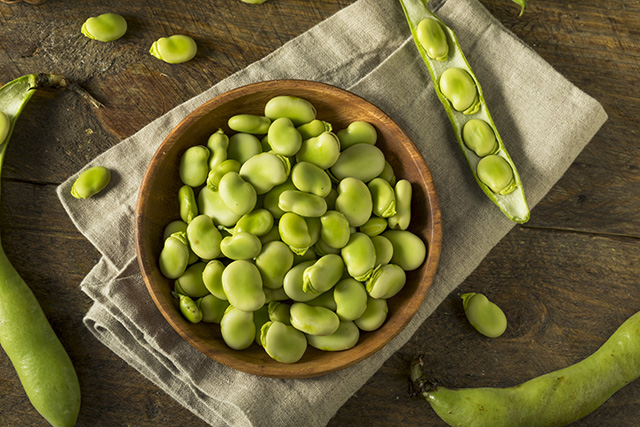The “magical fruit” for diabetics: Eat more beans to control your blood sugar levels
10/01/2019 / By Edsel Cook

Beans may not grow into a massive beanstalk that reaches the land of the giants up in the sky, but they are amazing superfoods for people with diabetes as they help keep blood sugar levels in check.
These legumes top the list of diabetic superfoods recommended by the American Diabetes Association (ADA). Their antioxidant, dietary fiber, mineral, and vitamin content may help prevent the onset of diabetes.
Beans also provide healthy amounts of protein. They cost much less than other sources of nutrition, making them attractive for healthy people and diabetic patients alike, especially those on a tight budget. (Related: Want to lose belly fat? Eat more of these 27 superfoods.)
How do beans benefit people with diabetes?
When it comes to their effect on blood sugar levels, the complex carbohydrates found in beans rank low on the glycemic index (GI) scale. It takes the body more time to digest them, so they release sugar into the blood at a slower and steadier rate, keeping blood glucose levels stable for long periods.
Be aware that baked beans may contain more carbohydrates than fresh ones. The higher amount of carbs makes eating baked beans less healthy for diabetic people. Even worse, canned baked beans also contain large amounts of added sugar. So stick to freshly-cooked meals as much as possible.
The benefits offered by complex carbohydrates are further enhanced by the high dietary fiber content of beans. Fiber improves digestion and helps good gut bacteria flourish.
Eating beans and other fiber-rich foods can help reduce the effects of simple carbohydrates on blood glucose levels. Fiber slows down digestion, and this helps keep blood glucose levels stable.

Aside from supporting digestion, dietary fiber also improves heart health. Fiber helps regulate blood cholesterol levels and reduces the risk of heart disease, obesity, and stroke. Cardiovascular and metabolic diseases often arise from the unhealthy conditions caused by diabetes.
Other nutritional and health benefits of beans
Beans also provide plenty of plant-based protein that the body needs to grow and repair tissue. Protein is a source of energy, but like complex carbohydrates, it takes more time to be digested, so it keeps people feeling full longer. This makes people eat less and helps prevent overeating and obesity.
A cup of beans provides as much protein as two ounces of meat. But unlike animal-derived foods, beans do not have any saturated fats. They offer an excellent way of increasing protein intake without adding too many calories.
Beans are also nutritious superfoods. They contain plenty of vitamins and minerals, such as calcium, folate, iron, and magnesium.
At the same time, beans barely have any unhealthy cholesterol, trans-fats, and salt. The combination of high nutrient content and low harmful compounds makes beans very effective for the prevention of diseases.
Everyone should add beans to their diet
It is easy to add beans to meals. Simply eat them as a side dish or as part of the main course.
Beans go well with chilis and salads. They also make great vegetable patties for bean burgers, as well as filling ingredients for burritos and tacos.
Black beans, garbanzo beans (chickpeas), kidney beans, lima beans, navy beans, pinto beans, and white beans are all tasty and healthy options.
Whenever possible, get fresh and raw beans. Prepare them for cooking by soaking them in water for eight to 12 hours, followed by a thorough rinse. This reduces the risk of bloating, gas, and other unpleasant side effects of eating beans.
Sources include:
Submit a correction >>
Tagged Under:
anti-diabetes, anti-obesity, antioxidants, beans, blood cholesterol, blood sugar, blood sugar management, clean food, complex carbohydrates, diabetes, diabetes cure, diabetes prevention, dietary fiber, digestion, digestive health, emergency medicine, fightobesity, food cures, food is medicine, functional food, glycemic index, heart disease, heart health, herbal medicine, Herbs, medical marijuana, metabolic diseases, natural cures, natural medicine, nutrients, obesity, prevention, remedies, stroke, survival medicine
This article may contain statements that reflect the opinion of the author





















